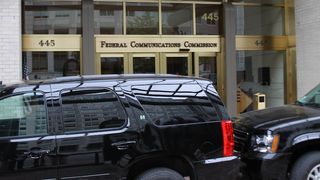Noncommercial TV to FCC: We Don't Need ATSC 1.0/3.0 Simulcast Mandate

Noncommercial TV stations say the FCC should not mandate that they deliver both current ATSC 1.0 and the next gen ATSC 3.0 transmission standard in the transition to the latter the FCC is preparing to authorize.
That came in comments due this week on the proposed authorization.
The FCC is proposing a simulcast mandate since ATSC 3.0 is not compatible, and it wants to insure that TV stations continue to deliver ATSC 1.0 while they are rolling out the new standard.
PBS, CPB and America's Public Television Stations say they understand the FCC's concern and share it and that noncoms don't need a mandate to ensure their viewers are served, which is the core of their mission.
But they also say they need to customize their approach. "If the Commission adopts the proposed simulcast mandate, then it would unnecessarily constrain the ability of public television stations to best serve local community needs."
TV stations in the same market are looking to team up to deliver the new signals, with one station delivering both standard signals, and the other getting the equipment to broadcast the ATSC 3.0 signals as a way to transition into the new tech.
Noncoms say they have a harder time finding such partners, or ones that replicate their coverage, given the many statewide networks are not confined to particular DMAs, for example.
Broadcasting & Cable Newsletter
The smarter way to stay on top of broadcasting and cable industry. Sign up below
"Many public television stations will have unique challenges finding a natural transition partner with which to simulcast, and those stations would need the mandate to be waived in order to serve their local viewers with the benefits of ATSC 3.0," they said.
To that end, if the FCC does impose the mandate on noncoms as well as commercial stations, they want a waiver presumption, meaning the FCC would presume that a noncom needed a waiver rather than require it to demonstrate why or at least a liberal waiver standard.
Contributing editor John Eggerton has been an editor and/or writer on media regulation, legislation and policy for over four decades, including covering the FCC, FTC, Congress, the major media trade associations, and the federal courts. In addition to Multichannel News and Broadcasting + Cable, his work has appeared in Radio World, TV Technology, TV Fax, This Week in Consumer Electronics, Variety and the Encyclopedia Britannica.

